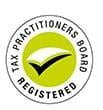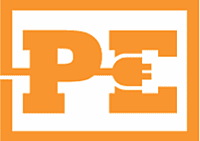1. Contribute to a Spouse's Superannuation
- If your spouse is earning a low income or not working, you can contribute to their superannuation fund and claim an 18% tax offset on contributions up to $3,000.
- To qualify for this, your spouse's income must be $37,000 or less. A partial tax offset is available if your spouse earns less than $40,000.
- Simply arrange for the contributions to be made from your post-tax income into your spouse's superannuation fund.
2. Maximise Superannuation Contributions
- You can make pre-tax contributions to your superannuation up to the concessional cap limit ($27,500). These contributions are taxed at a lower rate of 15% instead of your marginal tax rate.
- These contributions can be made through a salary sacrifice agreement with your employer or by making a personal deductible contribution.
- Consult with your employer or fund manager on how to set up or alter your superannuation contributions.
3. Claiming Work-Related Expenses
You can claim tax deductions for expenses directly related to earning your income. These can include:
- Vehicle and travel expenses (not including the costs of travel between work and home)
- Clothing, laundry, and dry-cleaning expenses
- Home office expenses
- Tools, equipment, and other assets
- Self-education expenses
- Books, periodicals, and digital information
- Internet and mobile phone expenses
- Overtime meals
- Union fees and subscriptions to associations
- Sun protection expenses
Remember to keep detailed records of these expenses and only claim the work-related portion.
4. Work from Home Deductions
- If you've been working from home, you may be able to claim a deduction for the additional running costs you incur.
- These include heating, cooling, lighting, decline in value of home office furniture and equipment, etc.
- The ATO provides detailed guides on how to calculate these costs.
5. Self-Education Expenses
- If you are studying an area related to your work, you may be able to deduct self-education expenses. This includes tuition fees, course materials, and certain travel costs.
- The course must have a sufficient connection to your current employment and should enhance your skills or knowledge in your current role.
6. Vehicle and Travel Expenses
If you use your own car for work purposes, you can claim the costs for these journeys. Here are the steps to calculate these deductions:
- Cents per kilometre method: You can claim a maximum of 5,000 business kilometres per car. The rate per kilometre for the 2022-23 income year is 72 cents. You'll need to provide a reasonable estimate of your business kilometres.
- Logbook method: Your claim is based on the business-use percentage of the expenses for the car. Expenses include running costs and decline in value. You need to keep a logbook for a minimum continuous period of 12 weeks, and you can then apply this percentage to all your car expenses.
Note: Travel from home to work and vice versa generally can't be claimed as it is considered private travel.
7. Donations
- Donations made to registered charities are tax-deductible.
- You should keep a record of all donations to claim them on your tax return.
8. Income Protection Insurance
- Premiums for income protection insurance are generally tax-deductible. This insurance should not be confused with life insurance, trauma insurance, or critical care insurance, which are not deductible.
9. Invest in Tax-Friendly Assets
- Investing in certain assets can provide tax benefits. For example, investing in shares provides dividend income, which may come with franking credits. These franking credits can be used to offset your tax liability.
- Another example is investing in negatively geared property, where the rental income is less than your expenses. The net rental loss can be offset against other income, reducing your overall taxable income.
10. Salary Packaging
- Salary packaging, also known as salary sacrificing, is an arrangement where your employer pays for goods or services out of your pre-tax salary. This reduces your taxable income and therefore the amount of tax you pay.
- Common items for salary packaging include cars, computers, or superannuation contributions.
- Speak with your employer about what salary packaging options are available to you.
Useful References:



































